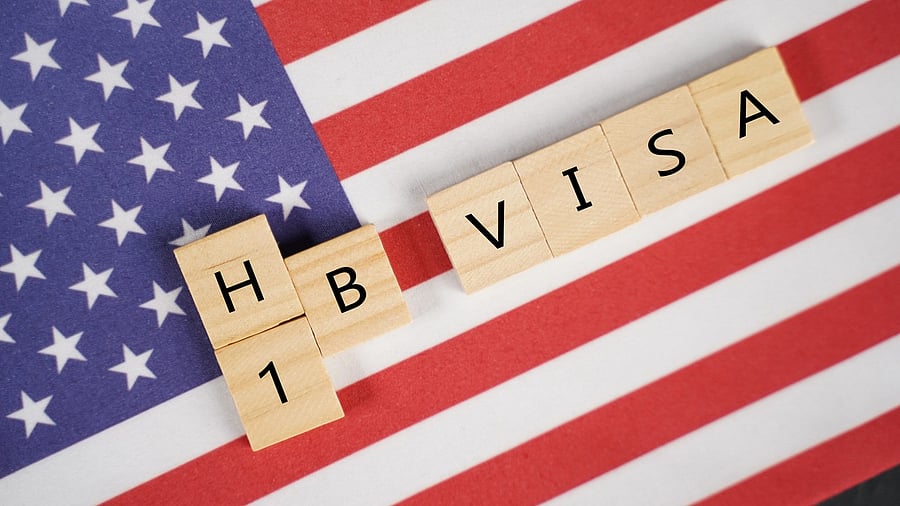
Representative image for H-1 B Visas.
Credit: iStock photo
Elon Musk, born in South Africa, moved to Canada in 1988 at the age of 18, hoping to migrate to the United States someday. As his mother was born in Canada, he got a passport issued by the North American nation’s government. The passport finally helped him migrate to the US as a student. The rest is of course history.
Most of the 4.4 million Indian Americans residing in the US have a story similar to that of the Tesla CEO, who turned into a US citizen in 2002. They migrated to the US as students or temporary workers on H-1B visas. Indians make up at least one in every four international students in US universities and play an outsized role in the US economy, and now in politics too.
A report by Indiaspora, a US-based non-profit, shows that Indian Americans occupy over 4.4 per cent of the senior public service positions in the US, while they make up just around 1.5 per cent of the country’s population. Out of 648 unicorn startups in the US, 72 have Indian-origin founders, making up around 11 per cent of the total.
DH Infographic
16 of the Fortune 500 companies are led by chief executives of Indian origin. Indian Americans contribute over $300 billion in tax revenues to the US federal treasury annually, higher than the total direct tax collections in India – $235 billion – in 2023-24. As of 2023, Indian companies have invested a cumulative $40 billion in the US and created 426,000 jobs.
Like Musk, who built a business empire in the US, tens of thousands of people of Indian origin have contributed significantly to the American economy and have created jobs for Americans.
One of the key poll planks of Donald Trump in the US presidential election was Make America Great Again (MAGA). The far-right supporters of this movement have been demanding sweeping changes in US immigration policies, including banning H-1B visas, which they allege allow foreigners to take away the jobs of Americans. They argue that companies exploit the programme to hire foreign workers at lower wages, bypassing qualified Americans.
The row over the H-1B visa scheme within the MAGA camp erupted after Trump picked Indian-origin venture capitalist Sriram Krishnan as policy advisor on Artificial Intelligence (AI). Krishnan, a supporter of liberal immigration policy, wrote on X in November arguing for removing country caps for green cards.
Musk has staunchly defended the H-1B visa programme despite backlash from the nativists. “The reason I'm in America along with so many critical people who built SpaceX, Tesla and hundreds of other companies that made America strong is because of H-1B," Musk wrote on X, but also called for overhauling the ‘broken’ visa scheme.
New Delhi stressed that the movement of skilled professionals was an important part of the India-US relations, and it benefitted both countries.
Nagesh Kumar, the former director of the United Nations Economic and Social Commission of Asia and the Pacific, says that the US is unlikely to drastically change the H-1B visa programme and the issue looks more like “election rhetoric”.
Out of the total 265,777 H-1B visas issued by the United States in the fiscal year ending September 30, 2023, 78 per cent went to Indians. The majority of them are employed with Information Technology companies. Indian IT firms – Infosys, TCS, HCL Technologies and Wipro – have been among the biggest beneficiaries of this programme. A ban or drastic change in H-1B visa policy would significantly impact their businesses.
“While potential H-1B visa reforms under the Trump administration could pose challenges for Indian IT professionals and companies, they may also present opportunities to adapt and strengthen the offshoring model to mitigate the impact of such changes,” says Bipin Sapra, Tax Partner, EY India.